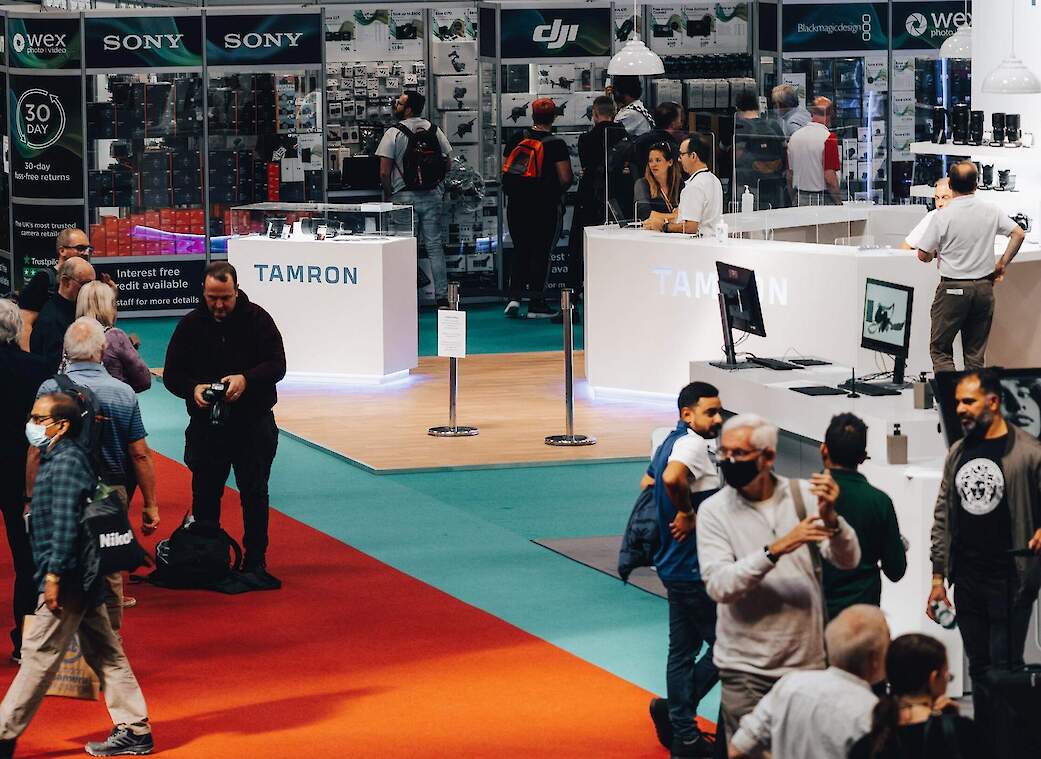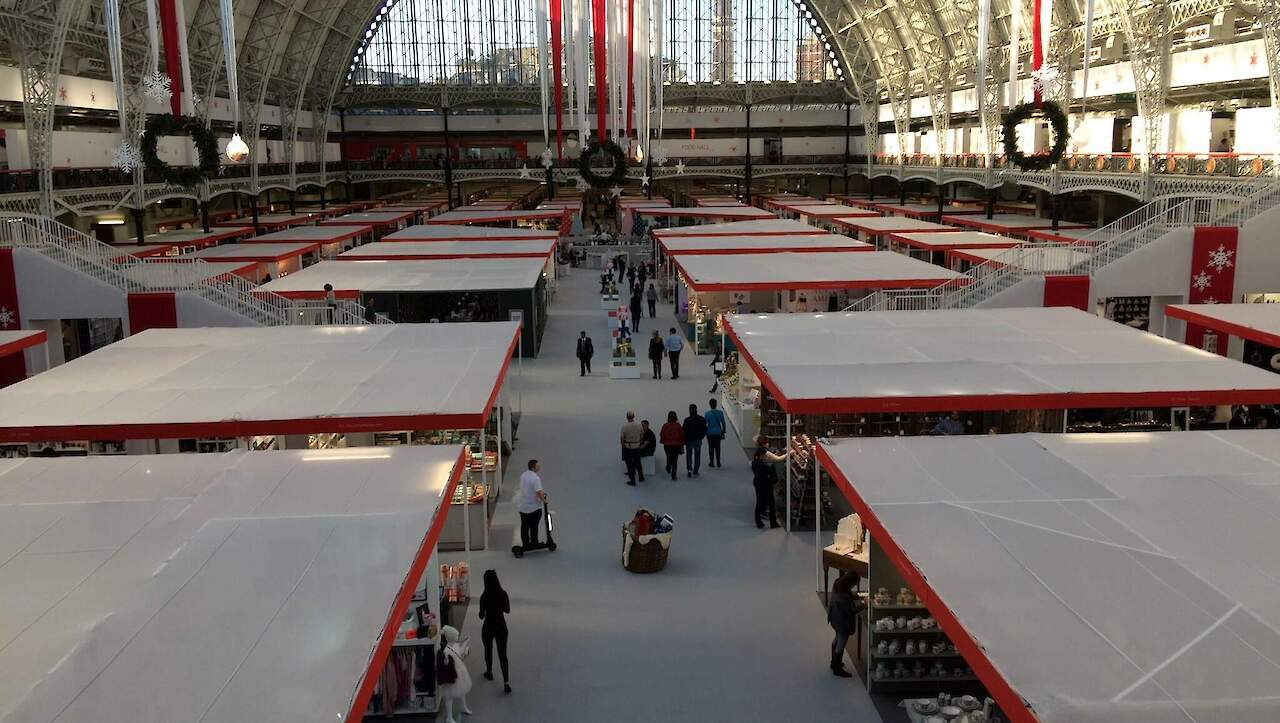
So, what is the difference between a trade show (including an online exhibition), an Exhibition, an expo and a trade fair? They all sound quite similar, and it is often quite difficult to understand what the difference is. These terms are now used very loosely and sometimes mean the same thing - an event where people gather to socialize, learn about new products or services, and possibly direct sales.
However, these terms had different meanings initially and it is good to understand these meanings and why they are not used properly today.

These are events that are held on a business events platform and focus on one niche industry at a time. They target larger companies, which usually means that the exhibitor's default choice is a custom-built trade show booth. It suits reputable companies that are specifically looking to network and partner with other industry players. It's not about the number of exhibitors, but more about the quality of the attendees and exhibitors. It's an event where early corporate partnerships can be formed and refined to officially enter the marketplace.
Strict B2B
Eligibility for these events is strictly limited to trade only (only niche industry representatives can attend), which means exhibitors will get an ideal target group of visitors who are already industry savvy and decision makers. These people want to know what's new, what hasn't been officially launched yet. Also, because these events are niche, they tend to receive very little media coverage until more information about new products/services becomes available.
Network and partnership
Tradeshows are prime events where industry leaders and key players can gather at one of the best trade show venues to network and potentially build partnerships to form a larger organization that will dominate a particular sector. These corporate events also usually promote an international presence so that anyone who attends trade shows can talk to other like-minded companies from around the world and see how they are performing and what improvements could be made.
Introducing products that have not yet been released to the general public
As a rule, there are no sales of products at a trade show; the priority is to introduce future products that are very close to completion or already ready and need to share this with the industry in order to assess the market and see what demand there may be, if there is potential for further expansion through partnerships. Or if adjustments are required, bring the product to perfection and make it an integral part of another source of income for the business. For your business to be presented as efficiently as possible, contact a stand designer - be one step ahead.

Exhibitions also belong to the B2B category. It is the place where trade professionals and resellers gather to introduce new products and services. This type of event is suitable for both established and start-up companies that prioritize a strong brand image. The exhibition introduces new products or services, while a demonstration is available for customers. This is so that customers can test the products for themselves and see if these solutions are right for their business. Again, no sales are being made. The main purpose of the event is to inform stakeholders about the actions that the company is taking to bring its brand to a new level.
B2B (traders and resellers)
Shows are intended primarily for trade professionals and resellers in the same industry, and not for consumers or the general public. This ensures exhibitors reach out to the right people in the trade industry for recurring revenue rather than one-off sales. It also sets the tone for conversations, allowing companies to discuss the technical details and understand the key benefits of a particular product/service.
Presentation of new products/services and creation of brand image
For companies attending these events, the emphasis is on building a strong brand image, even though the main purpose of the show is to introduce new products/services. This helps to highlight the key products of the company, information about which must be communicated to customers. In a sense, big companies need to showcase their dominance in the industry, and small companies need to be noticed. Products/services that have not yet been officially launched are presented to the target audience to gauge their interest. Only limited media presence is allowed to keep the content of the event relatively exclusive.

Expo is a place where both sellers and consumers meet; the clear difference with exhibitions is that this type of event aims to attract maximum attention - they will have the highest attendance as they invite people from all sectors to participate without any restrictions. This is a platform that brings together as many people as possible in a short period of time. The media is welcome to create hype and share key details about companies trying to optimize their booths and offerings as much as possible.
B2B/B2C (consumers - retailers - manufacturers)
The Expo is usually open to both merchants and consumers without any restrictions; Visitors to exhibitors' booths vary greatly: some may have heard of the company's other products before, while others have no idea what the company does. Thus, at exhibitions it can be difficult to decide what and how to present in order to get the most optimal result. You need to be prepared for both very simple and extraordinarily detailed questions. The best way to do that is through asking the right questions from attendees, and analyzing the information collected. How to make your stand so as not to go unnoticed? It's trial and error, but you can at least start by learning from professional stand builders. Another key aspect is analyzing previous event data to
Maximum attention and opportunities in a short time
With the influx of visitors, it is easy to get lost in the crowd of exhibitors. Therefore, it is extremely important to have a booth design that targets the specific group of visitors you are looking for. Do you want to increase your local sales? Then you need to make sure you have enough inventory of the product and present it attractively. If you want to make useful connections with attendees or other exhibitors, you may want to provide an area where you can comfortably carry on a conversation.

Trade fairs are focused primarily on consumers, and anyone can come to these events. The trend is that there are more small booths and more like a marketplace to get the most sales. Visitors can immediately make a purchase, or leave their contact details (lead generation). The media is also widely welcomed and encouraged to promote the event in order to attract as many visitors as possible. For this reason, when doing an online or hybrid trade fair, a searchable catalogue can make all the difference.
B2C (business to client)
These events are usually open to the public with no limits on the number of participants. Most of the booths are filled with products that will be sold out by the end of the event. You can also see many start-up companies trying to enter the industry. Therefore, there are often stands selling either similar products, or vice versa, completely new, not previously presented anywhere.
Sales and lead generation
There are two main types of goals exhibitors pursue at trade shows: maximizing sales and generating leads. Sales are more focused on companies that sell products, while lead generation is for companies whose services cannot be provided at the event. The end-users are generally the general public and there are no restrictions on the number of participants at trade fairs, so maximum visitor traffic should be expected for only a few days. This makes the trade fair a great platform for small businesses to explore product demand and get feedback from customers to improve their product.
At present, the difference between exhibition, expo, trade show and trade fair is not as significant as it used to be; all of these terms are generally used freely without requiring a mandatory definition of the differences between them. First of all, you need to focus on the primary goals that must be achieved at the event. Whether it's B2B, B2C, or a mix - defining your target audience is important as different types of events have different limits on the number of attendees. If you want to explore these differences in more detail, or want to talk to experts who have been working in the industry for many years, OnlineExpo experts are ready to help you with this.
![]() Book a free consultation now, and we'll guide you through simplifying the events process!
Book a free consultation now, and we'll guide you through simplifying the events process!
We also recommend that you read:
How to choose a name for an online event
Learn more about the possibilities of the online event platform OnlineExpo